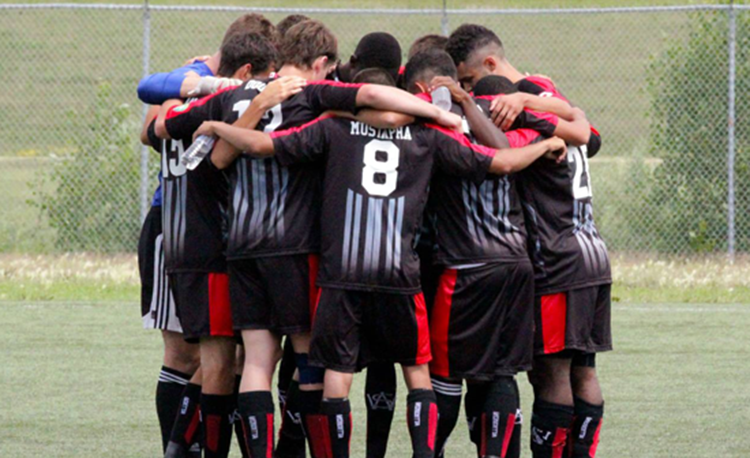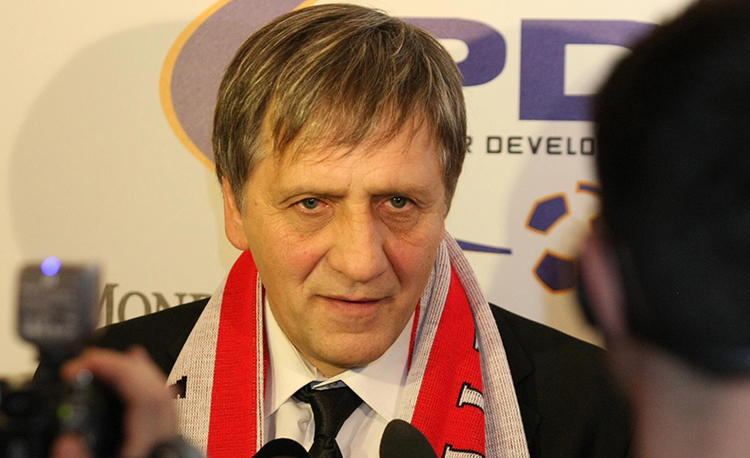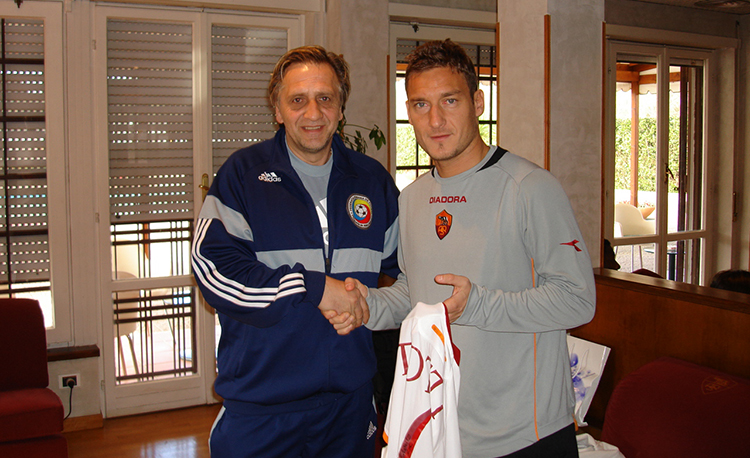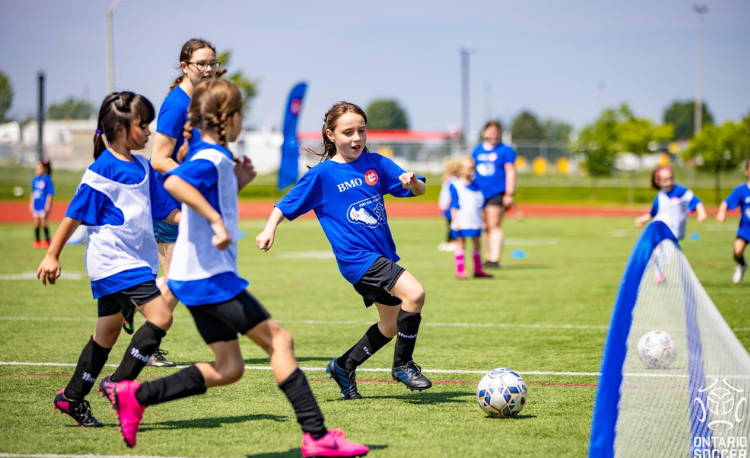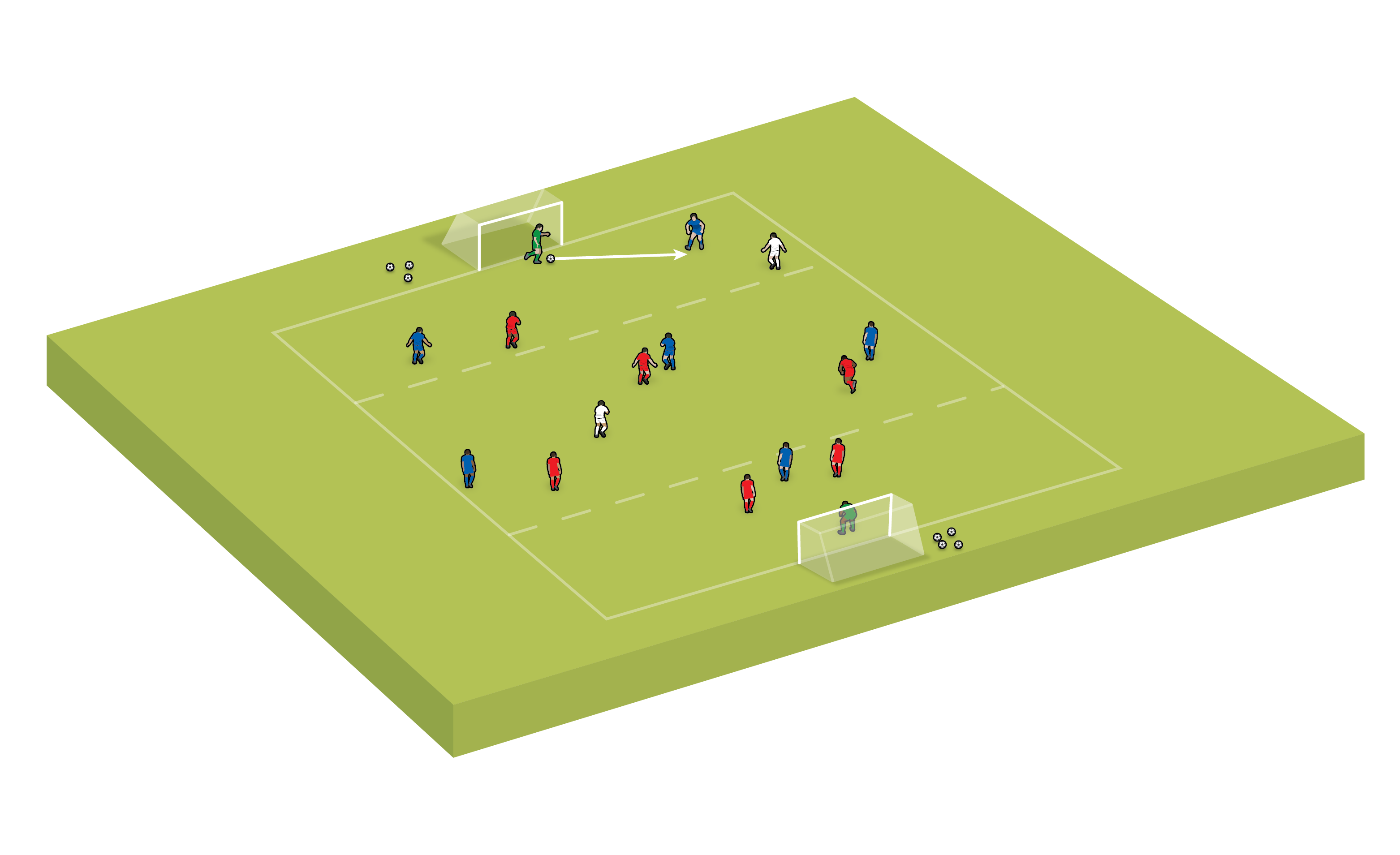How to create self-motivated players
In the second of his two columns on player engagement, EDUARDO BADESCU explores the concepts of autonomy and skill mastery and the role coaches play
If you do a quick look at the scientific research literature on athlete motivation, you will find close to 500 English-language articles on the topic from the last 10 years.
The research is really consistent: players who have a love of the game show positive outcomes and a whole host of characteristics that we all want in soccer.
I like the phrase “excellence is a habit”. People are habit-dependent. We are creators and followers of habits. When we do something, we do it because we are motivated, because we have a need.
When motivation and need are lacking, we may do things simply because we have become accustomed to them.
How do we break these habits that keep us at a lower level? The motivation that makes a player say “I can be more - I want more” is a habitual skill that can be trained.
On the day of competition, we either rise to our personal aspirations or drown in our own habits.
Here is what we can change to promote the development of habits that lead to excellence. There are two areas to focus on if coaches want to train a love of the game.
Support player autonomy
Player autonomy is linked to intrinsic motivation, proposed by psychologists Richard Ryan and Edward Deci in 1977.
In a sporting context, it can be defined as the sense of freedom a player has where he or she feels they can make their own choices. The opposite is when players feel controlled or micro-managed by a coach.
"Good coaching supports both player autonomy and intrinsic motivation..."
Player autonomy is a personal sense that he or she has the freedom to regulate their own actions and are empowered to make choices for themselves, in terms of decision making both in the game and around their wider sporting career.
Players who are in situations where their autonomy is supported tend to be more intrinsically motivated - this is when a player wants to play because he or she finds the sport rewarding in its own right.
Unlike the example outlined in last week’s column, no external rewards are necessary. Intrinsically motivated players are the ones who love the game.
Good coaching supports both player autonomy and intrinsic motivation. Research says this means doing the following:
Be empathetic: Give players time to correct bad habits.
Offer choices: Give ways of correcting mistakes and let players choose which they prefer.
Provide clear and realistic objectives: In other words, a clear, big-picture strategy that puts correction in context.
Avoid personal-related statements: Critique is about the sport-related behaviour and not the personalities of the players.
Pair critique with clear direction: Offer clear tips when giving feedback about poor performance.
Support mastery motivation
The second element of a love of the game is described by researchers as ’mastery motivation’. This is when a player is driven to master aspects of their sport.
A player who is high in mastery motivation is driven to improve his or herself and sees themselves as the person to beat. It is about getting better, because one is driven to master, say, soccer - and this is different from performance motivation.
Players motivated to master skills and always improve are driven to compete against themselves, competently demonstrate better performance, value looking good in their own eyes, and take feedback from others as tips for how to do better.
Mastery-driven players are motivated to learn new skills and put them into practice, use feedback from players and coaches, keep going in the face of challenge, and take risks and innovate. In other words, they are coachable, and show both resilience and confidence.
By contrast, performance motivation is when players are motivated to improve because they want feedback on their performance.
A player driven by performance motivation craves approval of others - this form of motivation is also called ’egocentric motivation’.
In the long run, these players show lower competence, lower resilience, high drop-out rates, poor sportsmanship, and undermine positive team chemistry.
It is reward systems, as discussed last week, that lead to performance motivation. Good coaching involves doing the little things that train mastery motivation.
This means avoiding comparing players directly. Don’t say “Were you better than Sally today?”, “Sally’s passing technique is better than yours", or even “You’re the best on the team".
Instead, address skills and techniques that are performed well when you wish to compare players - e.g., “Watch closely how Tommy receives the ball. What do you see him doing?”.
The key to creating mastery motivation is to train players to identify their own goals. Goal-setting is crucial to promoting mastery motivation, so coaches should encourage players to use the S.M.A.R.T. goal-setting guidelines.
Specific goals: Easy to understand (“Check your shoulder during the game”).
Measurable goals: Provide players a strong sense of accomplishment (“Touch the ball 12 hours a week”).
Achievable goals: Easy to maintain (“Make three successful passes during your game”).
Realistic goals: Can be player specific (“Perform the roll over you’ve been practising”).
Timely goals: Allows for development within a game or throughout a season (“Keep improving your roll over during the season”).
Some researchers started from the well-known fact that rewards destroy a love for the game. They found that players who could develop a sense of freedom could be resilient to the destructive effects of rewards.
Rewards do not impact people if they can be helped to develop their own autonomy. The formula is simple - if you want players that love the game, support player autonomy and mastery motivation.
Moving forward
The bottom line is that coaches can create a culture where players achieve higher levels of excellence in all aspects of their sport, be they technical skills, tactical IQ, physical training, or psychological self-mastery.
Coaches have a huge role in creating players that have higher levels of wellbeing and the ability to bounce back in the face of challenge. Most importantly, coaches can play a huge role in creating players who stick around because they love to play.
"Coaches play a role in creating players who stick around because they love to play..."
Players who have been given an honest reading of their opportunities and expectations in the game will have a healthy and vigorous motivation to continue at whatever level suits them.
Let’s take some of what we know about research, and put it into practice for coaches when they work towards their licences. This means teaching coaches how to create a culture that isn’t contaminated by the toxic habit of rewards and evaluating them on their ability to foster such a culture.
There are some other basic changes we can make to support the love of the game. Soccer is becoming a big business in my homeland of Canada, with 200,000 more kids registered than play ice hockey.
The approaching men’s World Cup in 2026 [hosted by Canada and the US] and the start of the CPL all point to the fact that soccer is becoming a lucrative investment. This could be a great danger or a great opportunity, depending on how we approach investment.
A study published this year, based on a small sample of professional athletes, revealed an important angle on investment. It becomes easy to focus on the business of investment, but the researchers noted that it is important to see players as the most important resource a club possesses.
Investment should be directed to players first, and clubs or regulating bodies second. Investing in players’ development is what matters to the real success of an organization.
What can we do to make sure we think about investment in a way that prioritizes players’ development? We can promote the athletes and help them grow further through improved equipment, superior teams, more money for tournaments, money for recovery and highly qualified coaches.
Related Files
Newsletter Sign Up
Coaches Testimonials

Gerald Kearney, Downtown Las Vegas Soccer Club

Paul Butler, Florida, USA

Rick Shields, Springboro, USA

Tony Green, Pierrefonds Titans, Quebec, Canada
Subscribe Today
Discover the simple way to become a more effective, more successful soccer coach
In a recent survey 89% of subscribers said Soccer Coach Weekly makes them more confident, 91% said Soccer Coach Weekly makes them a more effective coach and 93% said Soccer Coach Weekly makes them more inspired.
*includes 3 coaching manuals
Get Weekly Inspiration
All the latest techniques and approaches
Soccer Coach Weekly offers proven and easy to use soccer drills, coaching sessions, practice plans, small-sided games, warm-ups, training tips and advice.
We've been at the cutting edge of soccer coaching since we launched in 2007, creating resources for the grassroots youth coach, following best practice from around the world and insights from the professional game.
